- Home
- Capability
- Products
- About Us
- Service Industry
- Service Cases
- Video
- Contact Us
-
Language

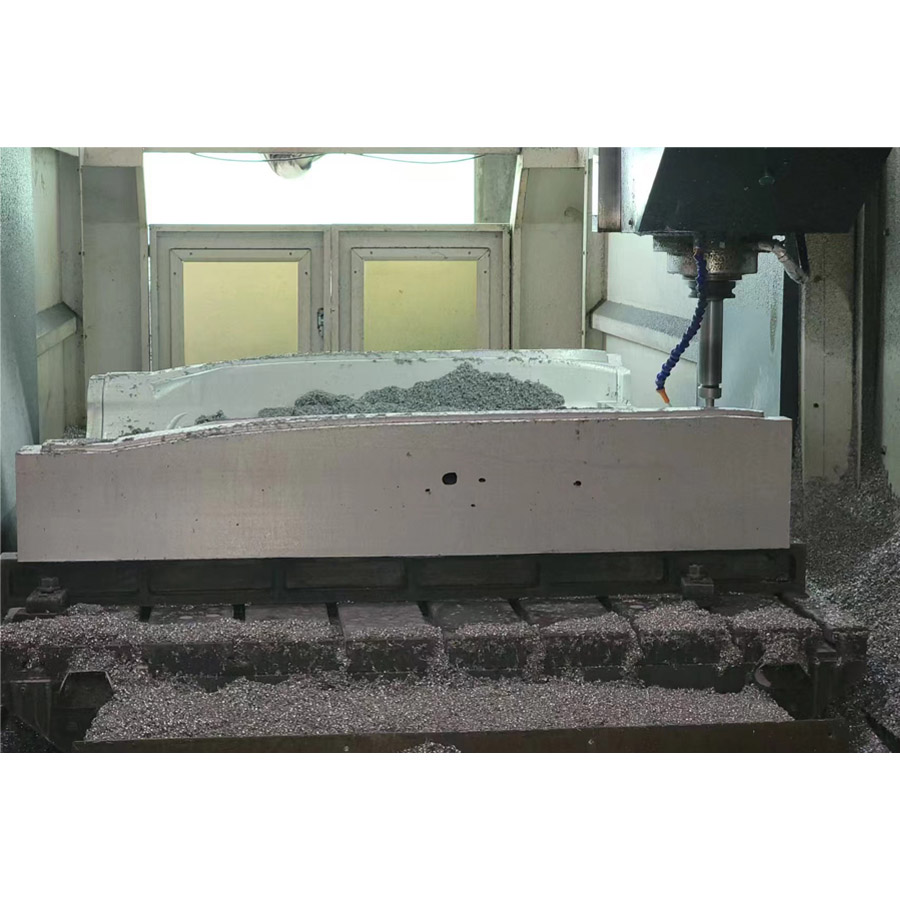
Lucky Vacuum Forming provides plastic engineering and plastic product design services to support customers. We assist customers in selecting suitable materials, designing plastic products and plastic molds, vacuum forming plastics, and handling complex assemblies.
Thick sheet vacuum forming is a versatile manufacturing process capable of producing plastic components with complex designs and intricate geometries. At the core of this process lies the mold—the form around which the plastic sheet material is shaped .As a manufacturer,Lucky vacuum forming have our own tooling workshop,we can make different tooling by ourselves ,and that’s will be faster and convenient to make the tooling and revise during project development.
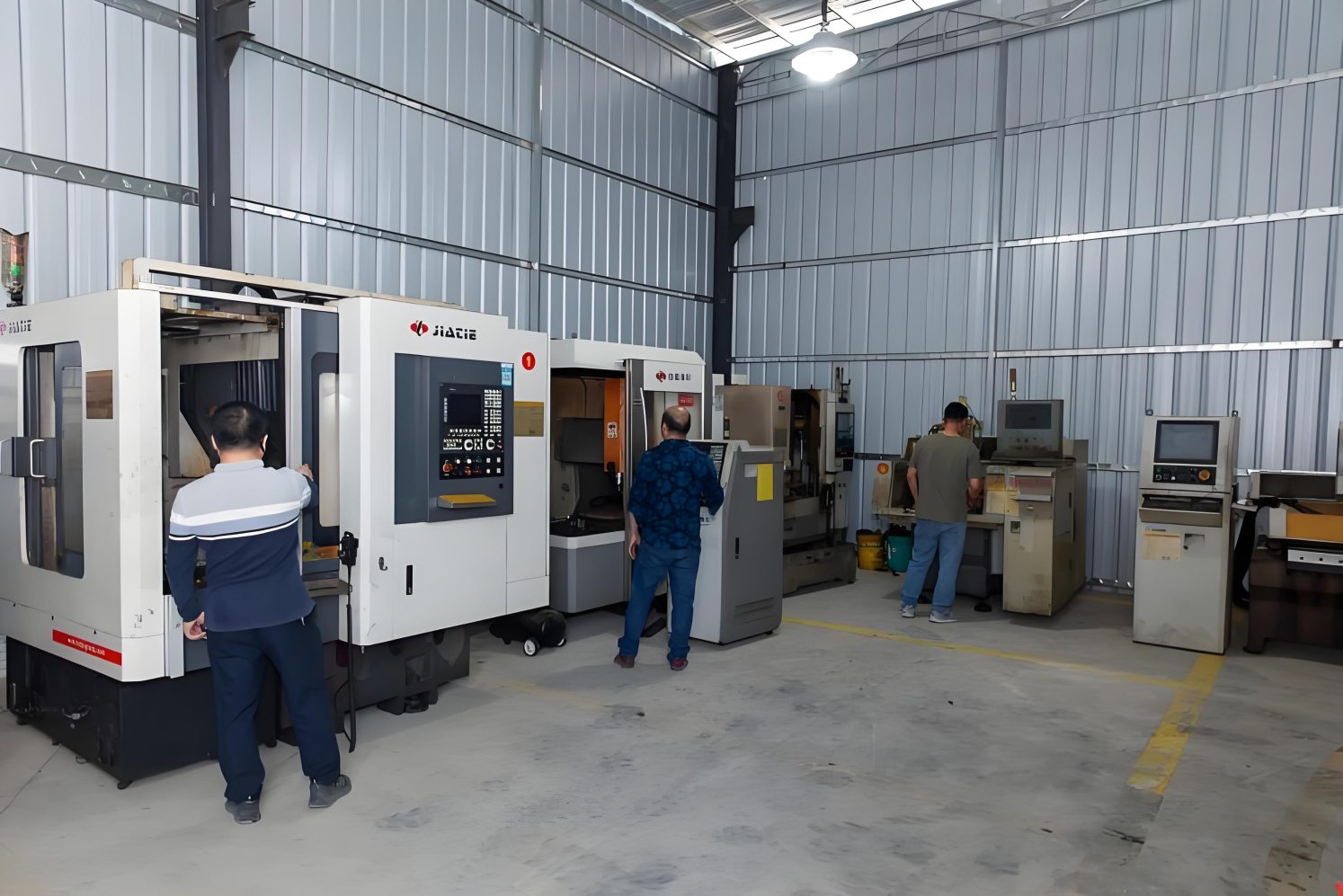
The tooling /mold is very important for vacuum forming,we have 5 different mold usually,block aluminium mold,casting aluminium mold ,resin mold ,fiberglass mold and wood mold.Let’s explain these mold difference and usage.
1. Block Aluminium Mold
For specialized vacuum forming requirements, block aluminum molds are mostly used for making transparent products from PE and PC, with small sizes not exceeding a height of 100mm. Due to its excellent machinability, durability, and thermal conductivity, we typically use 6061 aluminum to make this block aluminum.
One of the standout features of block aluminum molds is their thickness, typically ranging between 15-20mm. This thickness offers several advantages: it enhances the mold's durability, makes it easier to heat uniformly, and makes it more suitable for drilling vacuum holes or machining intricate details. Unlike thinner molds, these thick aluminum block molds' robustness allows for precise drilling without compromising structural integrity.
For transparent products, aluminum block molds can provide excellent surface smoothness. The CNC milling process produces an ultra-smooth surface, eliminating defects and blemishes that could impair transparency.
Moreover, for smaller-sized products, the material cost difference between block aluminum and cast aluminum is minimal, making block aluminum a cost-effective and high-quality choice.
However, for projects requiring clarity, dimensional stability, or special details, block aluminum molds are often preferred due to their thicker profile and inherent advantages.
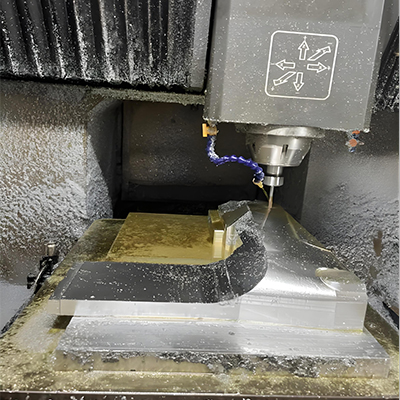
2.Casting Aluminum Mold
For vacuum forming applications, cast aluminum molds are a cost-effective and versatile choice, especially when the final product is large size and made of solid color or textured materials. One of the main advantages of these molds is their cost-effectiveness; compared to CNC machined aluminum block molds, the casting process typically requires fewer machining steps and less time, thus reducing production costs.
Although cast aluminum molds may have slight surface imperfections (such as small holes or blemishes), these imperfections have minimal impact when using opaque or textured materials. Despite the lower mold cost, these materials effectively mask such minor flaws, ensuring that the final product meets high aesthetic standards.
Additionally, cast aluminum is known for its ability to facilitate complex and precise designs. The ductility of the material allows molds to capture detailed textures or patterns, making it ideal for projects that require high design complexity.
Moreover, compared to other materials, cast aluminum molds are generally more tolerant of temperature changes, exhibiting a lower rate of thermal expansion. This makes them more stable during the vacuum forming process, potentially reducing defects in the final product.
In summary, for projects involving large size, solid color or textured materials, cast aluminum molds serve as a practical and economical alternative to aluminum block molds. Their affordability, ability to accommodate complex designs, and thermal stability make them a broadly applicable choice for various vacuum forming needs.
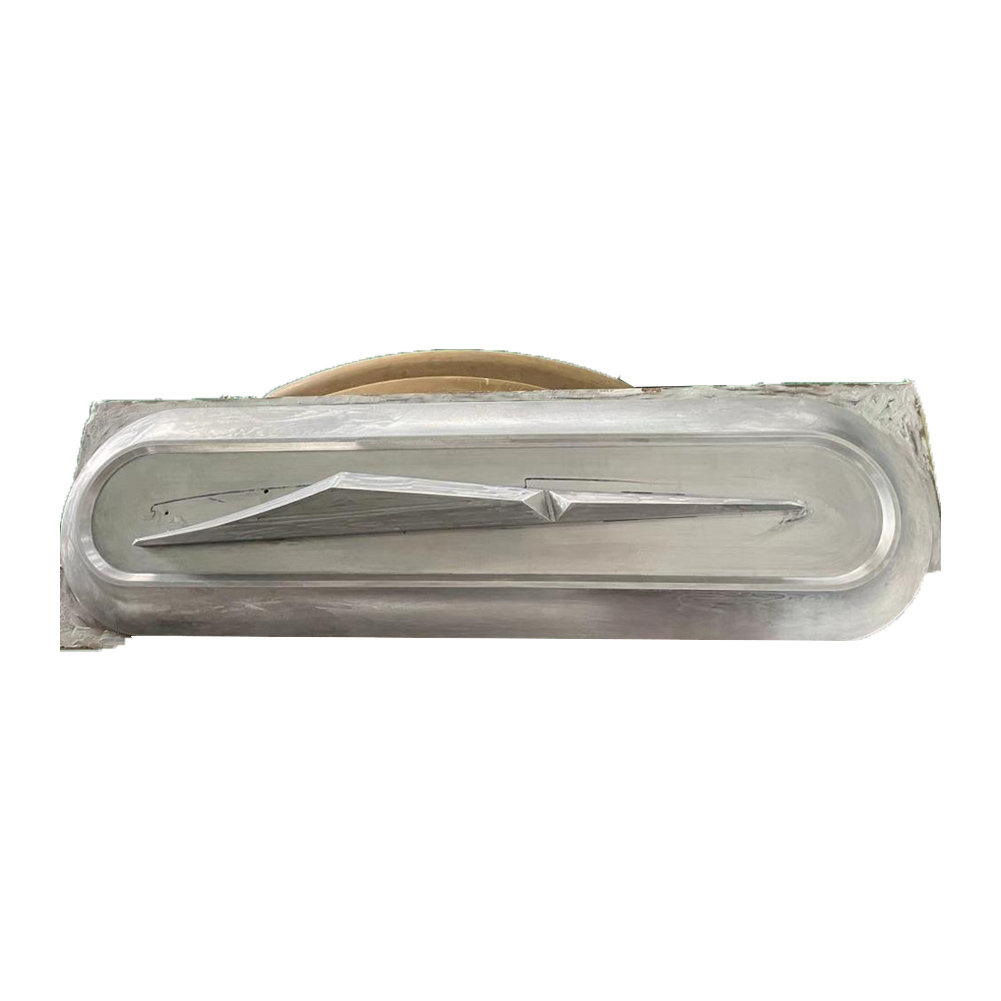
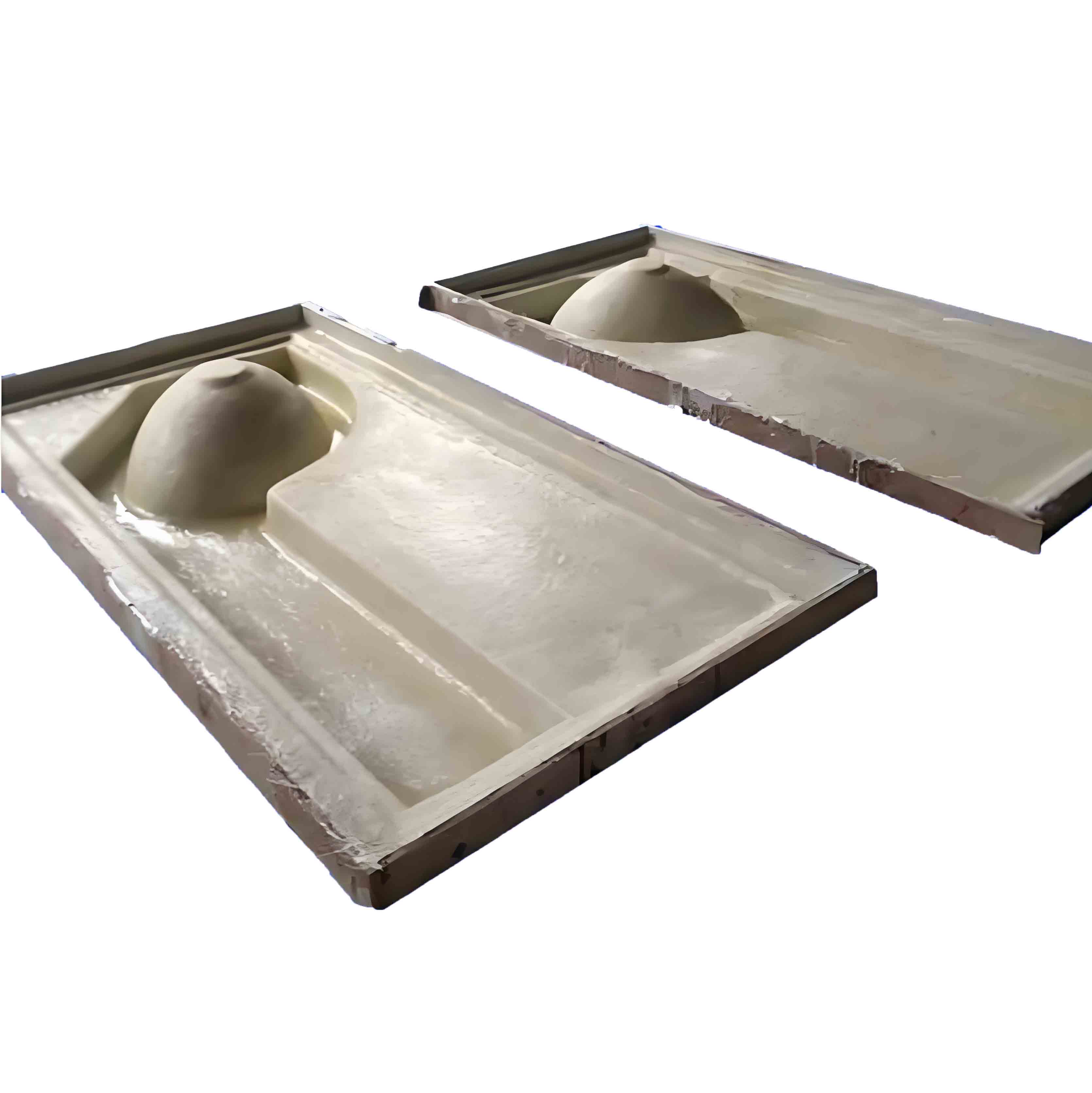
It made of the mixed material which include the resin and fiberglass,sometime as we need increase the strength,we will add gypsum powder or aluminum powder,this is according to the product and customer request,anyway,price will be higher.But fiberglass mold just suitable for sample order or some very small orders,it will be out of shape.
It made of the resin material,we usually use it for make sample and prototype ,can’t be used continuously.
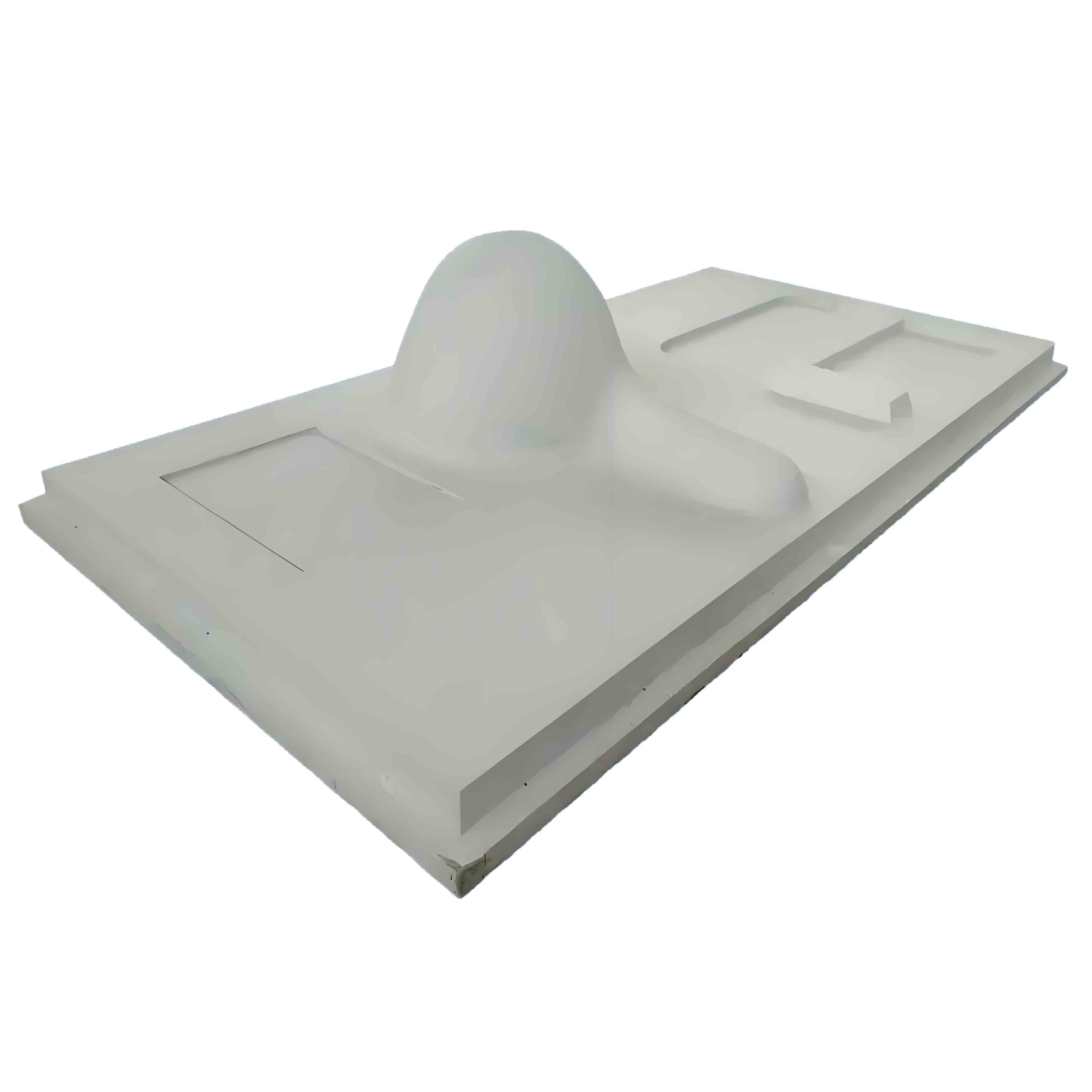
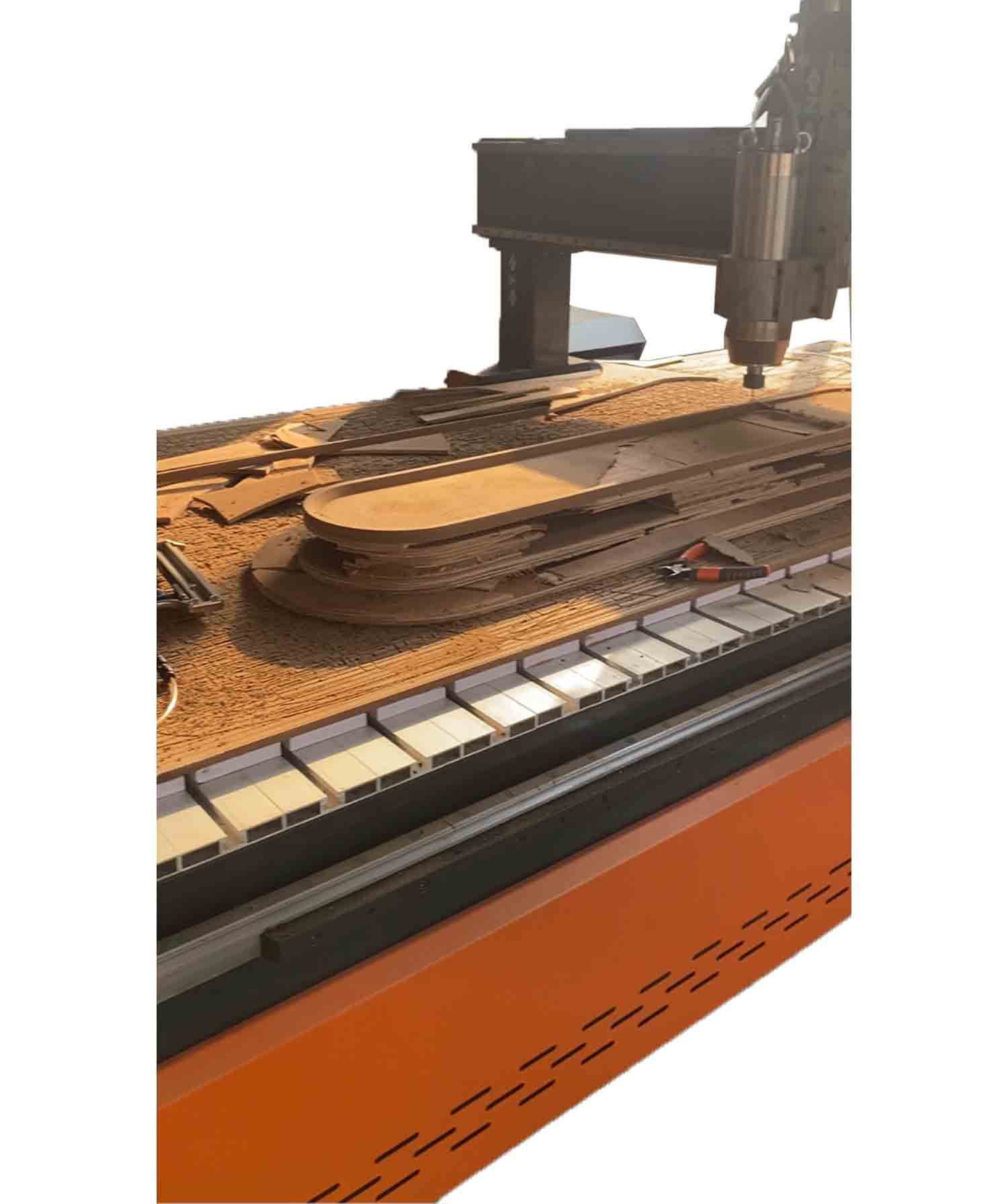
It made of MDF,we use it for sample or 2-3pcs trial order.This mold just can use 2-3 times.